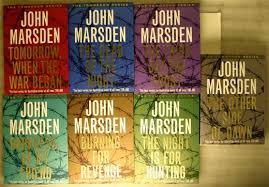¿Güeir du dei tich dat?
I was unable to apply for a nice little "translation" job posted today at ProZ because the outsourcer restricted bidding to credentialed translators. But the job consisted of writing out some 200 words of Spanish phonetically so that a non-Spanish speaker could pronounce them. En-TONN-sehss loh kay may pray-GOON-toh ehss DONE-day say tee-TOO-lah OO-noh pah-rah EH-ssoh. KRAY-oh kay loh SAY ah-SAIR mooey byehn AHOON-kay seen TEE-too-loh. Ee TOO kay oh-PEEN-ahss?
Labels: business, credentials, jobs, phonetics




3 Comments:
Hi! Sorry I am native spanish speaker and I got any of the words you wrote phonetically. What did you mean? Really, I got no word :)
Hola, Olli,
No quiero revelarlo todo y así quitar la diversión, así que daré unas pistas. La clave consiste en leerlo como si fueras angloparlante, olvidando toda la fonética español. Por ejemplo, al leer "ay" o "eh", nuestro angloparlante dirá "e"; "ee" se pronunce "i"; "oh" se dice "o"; y "oo" se dice "u". Cuando el angloparlante se pone a pronunciar "en-TONN-sehss loh kay may pray-GOON-toh", escuchamos algo parecido a "entonces lo que me pregunto" (con acento super-gringo, por supuesto).
En la cabecera del artículo es todo lo contrario: leelo como se fuera español, y escucha las palabras en inglés. Por ejemplo, al articular "tich", escucharás la palabra inglesa "teach".
Hi, Olli.
I don't want to give it all away at once, so I'll provide some clues, hoping it helps explain. The idea is to read this as an English speaker would read it, using English phonetics. Then listen for the Spanish words. So, for example, "ay" or "eh" would be pronounced "e"; for "ee", say "i"; for "oh", say "o"; and for "oo", say "u". Thus if our hypothetical English speaker reads "en-TONN-sehss loh kay may pray-GOON-toh", you should hear something like "entonces lo que me pregunto".
The title of the post is just the opposite; pronounce it as though it were Spanish and listen for the English words. For example, if you read "tich" as though it were Spanish, you should hear the English word "teach".
Can someone please tell me: is "dei" pronounced like "day"? I really need to know. Thanks!
Post a Comment
<< Home